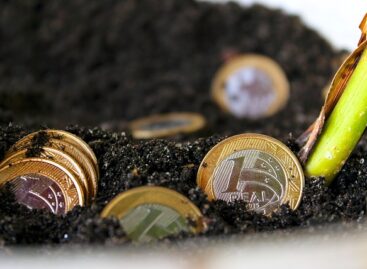The EP adopted a proposal for a regulation to curb deforestation
The European Parliament’s plenary session in Strasbourg adopted a proposal for a regulation on Wednesday, according to which it will be possible to distribute in the European Union only products whose production does not involve deforestation and forest destruction, which cause climate change and the reduction of species richness.

(Photo: Pixabay)
Pursuant to the proposed regulation, which was adopted with 552 votes, 44 against and 43 abstentions, EU distributors must certify with declarations that their suppliers acted with due care, i.e. after December 31, 2020, they only harvested wood in connection with the production of their products in such a way that they did not cause the destruction of forest areas , and that their products do not come from cleared forest areas. The companies will also have to report that the laws of the country of origin, including those related to human rights, have been followed during the production of the products, and that the rights of the indigenous peoples living there have not been violated.
The provisions apply to these products and raw materials
According to the European Commission’s original proposal, the provisions would have applied to coffee, cocoa, palm oil, soy, beef and timber, as well as products made from them, such as chocolate, leather goods and furniture. During the negotiations, the European Parliament supplemented the list with new products, so in the future the deforestation-free production of rubber, charcoal, printed paper products and some palm oil derivatives must also be certified.
According to the EP’s proposal, the conversion of primeval forests and naturally regenerating forests into plantation forests or other wooded areas is now considered forest destruction.
Within 18 months of the entry into force of the regulation, the EU will classify different countries or parts of countries into risk categories
Where the risk is low, it will be possible to apply a simplified procedure to demonstrate due diligence. The rate of inspections also develops accordingly: in the case of high risk, 9 percent of market participants, 3 percent in the case of average risk, and 1 percent in the case of low risk must be inspected annually. Proportionate and dissuasive sanctions will be applied to market participants or traders who break the rules. The highest fine that can be imposed will be at least 4 percent of their total annual sales at EU level.
MTI
Related news
István Nagy: You can join the agricultural crisis insurance system soon
🎧 Hallgasd a cikket: Lejátszás Szünet Folytatás Leállítás Nyelv: Auto…
Read more >







